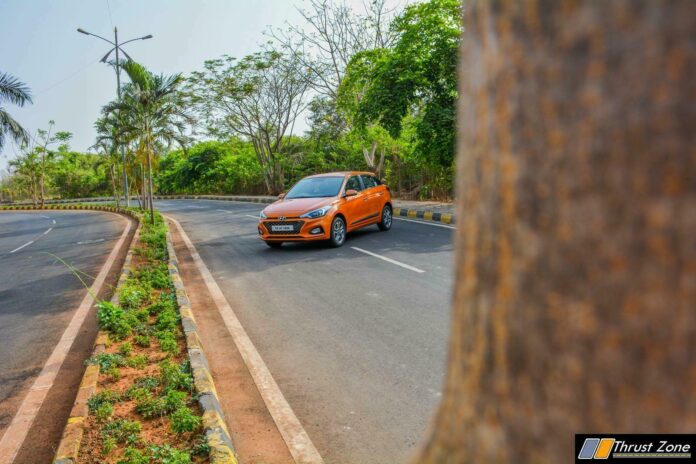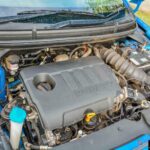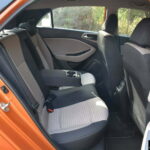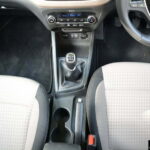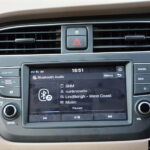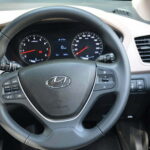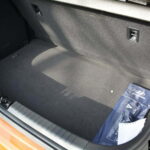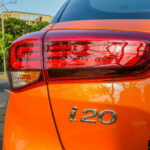The facelift Hyundai Elite i20, which was launched at a starting price of Rs 5.50 lakh, is finding good favor among the customers. The new model comes with a number of cosmetic changes although mechanically the car continues to remain the same. We drove the diesel and petrol version for some time to get an impression about them.
The changes on the outside include a redesigned grille, front fog inserts, and modified air dam. In the profile, the car gets newly designed 5-spoke alloy wheels while at the rear, slightly modified tail lamps replace the older units. Hyundai has tinkered with the design albeit subtly as the older styling was a big hit among the customers.
Changes inside the cabin are even more delicate and you will be hard pressed to observe alterations. Among the major differences, the car receives a 7” touch screen infotainment system, revised air-conditioning, and red-orange highlights. That said, the car misses out on distance to empty and average fuel economy readout.
While the boot space is good at 285 litres, the rear legroom, shoulder and knee room is behind segment standard. The top line Asta option variant has got a long list of equipment that includes six safety airbags, ABS with EBD, Isofix child seat mounts, and the rear seat armrest with cup holders.
Under the hood, new Elite i20 features a 1.2-liter petrol and a 1.4-liter diesel engine with a respective output of 82bhp/115Nm and 89bhp/220Nm. While petrol has received a 5-speed manual transmission and a CVT, the diesel comes equipped only with a 6-speed manual gearbox.
We drove the 1.2 petrol and 1.4 diesel with a manual gearbox. Both engines are great on NVH as they are very low and aid in stress free driving. The steering is light so is the clutch and gearbox operation at any given time. The petrol lacks performance and only has mid-range power. Top and low-end punch is mediocre and could have been better.
This is due to a higher kerb weight and tall gearing which makes this car not high on fuel economy, driveability or performance. It just manages to be a commuter with a refined engine. Diesel on the other hand with more power and torque feels just right.
Adequate performance, good, not great driveability and decent fuel economy of 16 km/l. Segment demands atleast 18-20 km/l like Honda Jazz and Maruti Baleno. Dynamically, it feels stable on the highway, but could be better. Low to medium speed ride quality is good but high speed does send a thud through the suspension into the cabin. Body roll is evident too. Steering lacks feel and feedback and is barely precise. Brakes are good with enough progressive power but pedal bite can be slightly spongy.
2019 Hyundai i20 Facelift Review, Verdict
While the Hyundai i20 doesn’t come close to offering a rounded power train or good driving dynamics it comes close to offering premium-ness and a large features list. Close analysis of the variants revealed that Asta is the best choice when it comes to a trade-off between prices and features.
It has got the modern gadgetry and creature comfort with prices starting at Rs 8.07 lakh for the petrol variant. However, if you are on a tight budget, Sportz trim is the one to go for as it offers necessary equipment to drive comfortably on Indian roads. (Both prices, ex-showroom, Delhi).
2019 Hyundai i20 Facelift Review:
-
Design
-
Interior
-
Features
-
Space
-
Safety
-
Value
-
Performance
-
Dynamics
-
Practicality


